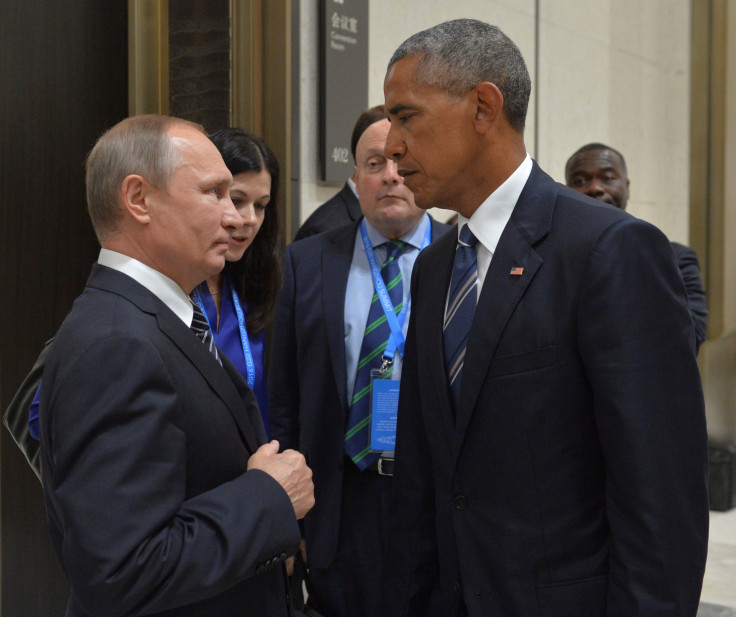World On 'Brink Of War': Putin Calls Push For US-Russia Conflict 'Crazy,' But Russian Hawks Say It Could Happen

Just a few years ago, the prospect of a war between the United States and Russia seemed unimaginable. Now, tensions between the countries have heightened to the point that some foreign affair specialists gathered this week for an annual meeting in Moscow are comparing it to the early days of the Cold War.
Specialists at the event — hosted by the Valdai International Discussion Club, a highly respected international group that promotes conversations between the international elite on foreign affairs — told Bloomberg that they were worried that the countries might “sleepwalk” into conflict as the two superpowers repeatedly come close to contact in war torn areas like Syria. They said they’re out of ideas on how to defuse the tension.
“The current situation is just like that in the 1960s, when the world was on the brink of war,” Sergei Karaganov, a hawkish member of the Russian foreign-policy community, told Bloomberg. “The possibility of war is definitely there, which could be triggered by minor mistakes.”
Robert Legvold, an emeritus professor of political science at Columbia University in New York, said the situation is “an extremely dangerous situation, what I call sleepwalking.”
Russian President Vladimir Putin has reportedly pushed back on the more hawkish members of his Cabinet who seem keen on stoking the fires and pushing the tension beyond another Cold War. In a recent meeting described to Bloomberg, Putin reportedly told a table of experts about a "high risk" incident in which Russian jets came close to U.S. Navy forces in the Black Sea. The people at the table cheered the maneuver and encouraged it. Putin, seemingly understanding the implications of a war, took a more moderate approach and shut those members down, asking them, "are you crazy?"
During the early days of the Cold War in the 1950s and 1960s, the United States and Russia had multiple conflicts in Berlin, Korea and Cuba that nearly brought the two nations to war. Today, tensions over the two countries’ involvement in the Syrian civil war, Eastern European sovereignty in places like the Crimean peninsula and Russian cyber hacks into American political emails have increasingly placed the two countries at odds. The major differences between a half decade ago and now are that the United States and its allies in the West are stronger than they were during the Cold War and both sides have fully developed nuclear arsenals that they are upgrading while saying they are replacing the weapons, Legvold said.
It is unlikely that any headway will be made between now and the inauguration of the next U.S. president, however, as this November’s election is between two candidates with starkly different approaches to Russia. Democratic presidential nominee Hillary Clinton has taken an increasingly hard-line approach to Russia as she denounces the country for meddling with the 2016 election process. Meanwhile, her counterpart Donald Trump has continually praised Putin as a strong leader and has said it would be a good idea to have a good relationship with the country.
© Copyright IBTimes 2025. All rights reserved.






















